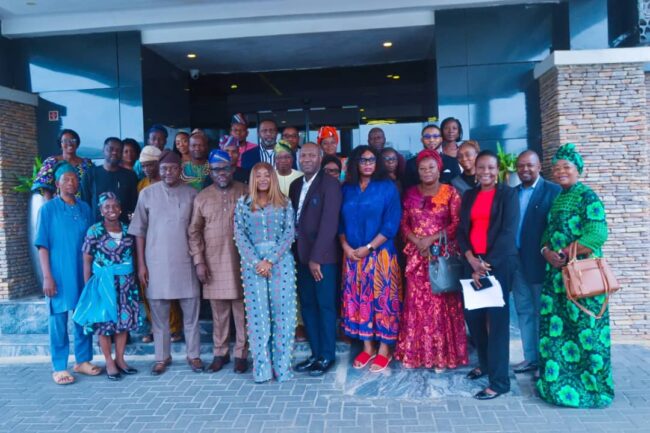SEED Care and Support Foundation, a leading advocate for affordable non-state education in Nigeria, successfully convened the ‘Access to Finance Forum’, the third edition of its groundbreaking event, on March 18, 2025, in Ikeja, Lagos State themed ‘Accelerating Action on Financing for the Affordable Non-State Education Sector in Nigeria’.
The Lagos event focused on innovative financing solutions, while on March 20-21, 2025, in Ibadan, Oyo State held a training themed ‘Strengthening Quality Assurance for Effective Basic Non-State Education Delivery in Southwest Nigeria’.
The events were held in collaboration with Partnership for Learning for All in Nigeria (PLANE)—a seven-year program funded by the UK Government and implemented by DAI—as well as the Development Agenda for Western Nigeria (DAWN) Commission and the Federal Ministry of Education.
ALSO READ: Foundation supports indigent Muslims across cities in Nigeria
The one-day Finance Forum in Ikeja, Lagos State, brought together key stakeholders, including representatives from the Office of the Vice President, commercial banks, microfinance institutions, mortgage banks, credit bureaus, Ed-tech finance organisations, philanthropists, NGOs, and development partners, to explore innovative financing solutions for affordable non-state schools.
Mrs. Olanrewaju Oniyitan, Founder and Executive Director of SEED Care and Support Foundation, emphasised the forum’s role in securing funding for affordable non-state schools—including low-fee private schools, faith-based institutions, and alternative learning centers—to improve educational quality.
“Stakeholders in the education sector must rethink financing—not as a challenge but as an opportunity for innovation and impact.
“The funding gap in Nigeria’s education sector presents a massive opportunity for financial institutions to develop tailored solutions that empower affordable non-state schools to provide quality education to marginalized children,” Oniyitan stated.
Among the key recommendations was a call for state governments to establish or review their Education Trust Fund frameworks to provide loans, grants, and financial support for the affordable non-state education sector. At the national level, stakeholders advocated for the establishment of a National Education Bank to facilitate sustainable financing solutions.
Oniyitan reaffirmed SEED’s commitment to ongoing stakeholder engagement, announcing plans for follow-up meetings, events, and workshops to further support education providers and financial institutions in bridging the funding gap.
The two-day training session in Ibadan, Oyo State, led by SEED Care and Support Foundation, focused on quality assurance, regulation, and public-private partnerships. Discussions covered key policies, including the National Education Quality Assurance Policy, school evaluation frameworks such as the Graded Assessment of Private Schools (GAPS), and the SEED Quality Assessment Tool (SQAT). Participants also received hands-on training in utilising technology and Artificial Intelligence for quality assurance services.
Speaking at the event, Oyo State Commissioner for Education, Science, and Technology, Prof. Salihu Adelabu, underscored the critical role of education in national development. Additionally, Seye Oyeleye, Director-General of the DAWN Commission, and Mrs. Abiola Sanusi, Federal Lead at FCDO-PLANE, highlighted the importance of standardized education policies and strengthened quality assurance in basic education delivery.
Mr. Adegboye Adebola, Director of the Federal Quality Assurance Agency, emphasised the necessity of standardization, stating, “Quality education is the foundation of a thriving society.”
In her remarks, Olanrewaju Oniyitan reiterated SEED’s dedication to ensuring Sustainable Development Goal 4 (SDG 4)—inclusive and equitable quality education for all—by 2030. She urged state-level Quality Assurance agencies, departments, and units to Recognize, Include, Support, and Engage (RISE) affordable non-state schools, ensuring no child is left behind in the pursuit of quality education.
ALSO READ FROM NIGERIAN TRIBUNE
